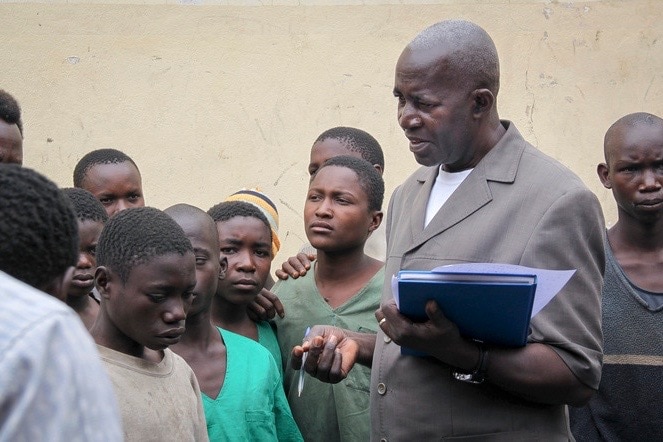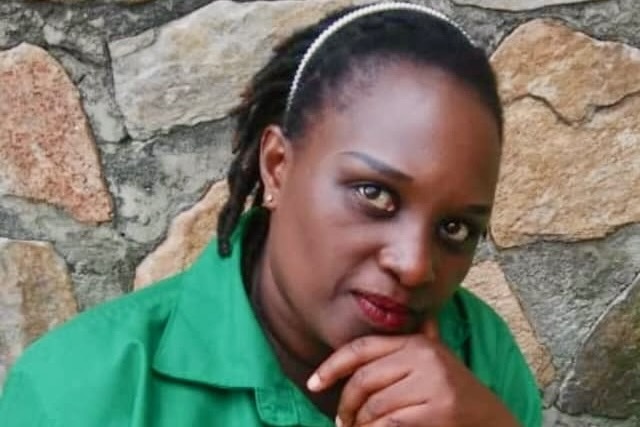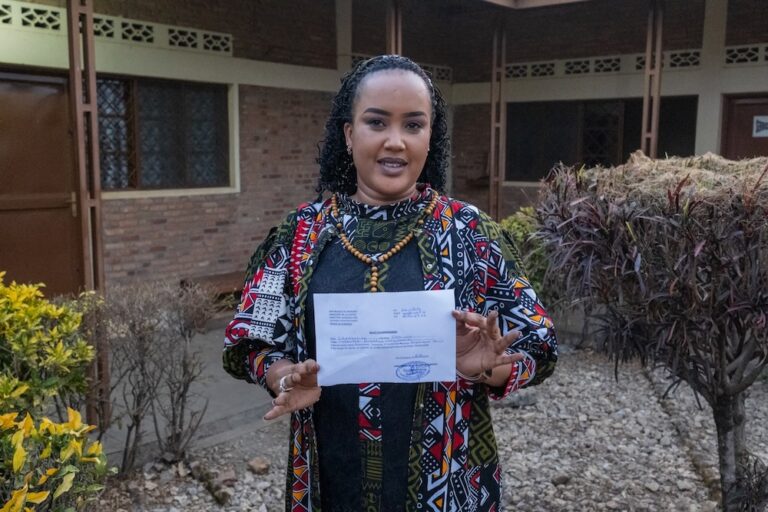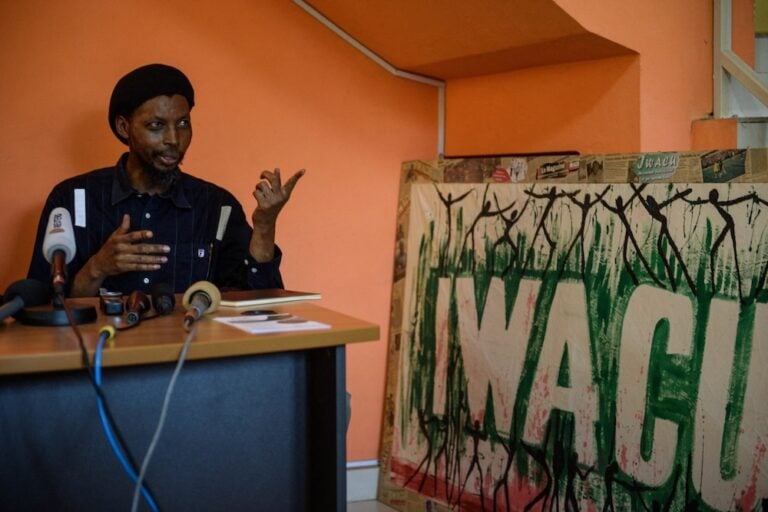As the crisis in Burundi threatens to tip back into civil war with escalating killings of demonstrators and government opponents, at its epicentre is the calm figure of human rights defender Pierre Claver Mbonimpa.
In a message sent from Brussels to his son’s funeral in Burundi, human rights defender Pierre Claver Mbonimpa said: Do not lose courage. Time will pass. The tragedies we face will end with a resolution of the conflict in Burundi. I maintain hope that it will come soon.
As the crisis in Burundi threatens to tip back into civil war with escalating killings of demonstrators and government opponents, at its epicentre is the calm figure of human rights defender Pierre Claver Mbonimpa. For more than two decades, Mbonimpa has been a voice for those unable to speak out. Despite the enormous esteem in which he is held within Burundi and outside, his life – and that of his family – are in acute peril. In the space of only four months, he survived an assassination attempt, and his son and son-in-law were murdered.
A former policeman, Mbonimpa spent two years in prison in the late 1990s, held on false charges. Tortured and beaten while there – and witness to the appalling treatment of his fellow prisoners – he was inspired on his release to set up the Association Burundaise pour la Promotion de Droits Humains et des Personnes Détenues (APRODH). The Association’s exposure of the torture and inhumane conditions in Burundi’s jails has led to an improvement in the prison system, the prosecution of prison officers, and, inevitably, threats and harassment. In a video marking the granting of the 2007 Martin Ennals Award, Mbonimpa tells of his mission to be the voice of prisoners who are unable to speak for themselves.
In May 2014, Mbonimpa was arrested and facing trial for supposedly spreading rumours inciting violence and endangering security. This sprang from comments he made on radio in which he claimed that members of the ruling party’s youth wing were being given military training in the Democratic Republic of Congo, citing that he had photographic evidence to back this up. Testimony to the public esteem in which he is held were the hundreds of supporters who turned up outside the court room, cheering and singing, so much so that a ban was issued against rallies in his support and no-one permitted to speak about his claims in the media. He was released on medical bail in September 2014.
Meanwhile, the situation in Burundi escalated into a crisis, sparked by President Pierre Nkrunziza’s decision to run for a third term, that could see a return to civil war. Protests erupted and hundreds have been killed, among them the assassination of a journalist, his wife and two teenage children. In July, Nkrunziza gained 69% of the votes in an election that the United Nations described as marred by violence and media restrictions, an “environment [that] was not conducive for free, credible and inclusive elections”. That is an understatement. The situation has since spiralled into a crisis that is feared will see the return of the extremes of the 1993-2006 civil war.
It was in this climate that, on 3 August 2015, Mbonimpa was seriously injured when he was shot at by men on motorcycles as he was heading home from work. The travel ban against him was lifted and he went to Belgium for hospital treatment for wounds to his face and neck. Events then took an even darker turn when, in October 2015, Mbonimpa’s son-in-law, Pascal Nshirimana,a businessman, was shot dead outside his home by passing motorcyclists who also threw grenades. Then the following month, another tragedy as Mbonimpa’s son Welly Nzitonda was murdered. A witness who was with Nzitonda when he was arrested, says that when police saw his identity papers that identified him as Mbonimpa’s son, he was set upon. His body was found in a nearby empty house. There is little doubt that the murders were in retaliation for Mbonimpa’s criticism of the military and the Nkrunziza leadership.
Despite these appalling crimes, and the attempt on his own life, Monimpa, speaking in December 2015 to the BBC from Brussels, pledged that he will return soon saying “I have to defend the population. I have to defend the voiceless”. He remains in Brussels, and continues to speak for APROHD, such as in March 2016 when the organisation discovered mass graves in Burundi.
Meanwhile the situation in Burundi remains dire. Human Rights Watch regularly reports on killings and torture of government opponents attributed to members of the government youth wing and members of the intelligence agencies alike. It is maybe typical of Mbopima that under these circumstances he still calls for peace. In March 2017 he advised Burundians to “…to be patient. I understand their frustration, but resorting to violence will only make matters worse. Let’s remember the lessons of our history: only dialogue will end the crisis.”
In September 2016, Pierre Claver Mbonimpa was awarded the Human Rights Watch 2016 Alison Des Forges Award for Extraordinary Activism.



